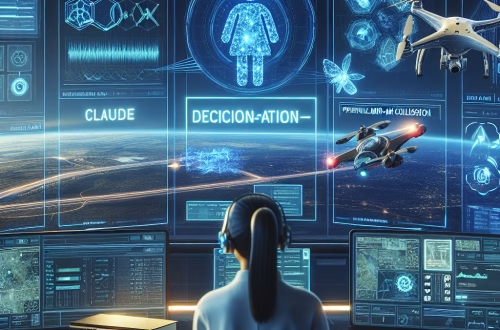Project Astra Universal AI Assistant 2025
Summary:
Project Astra is Google’s next-generation universal AI assistant, slated for release in 2025. Designed to integrate seamlessly across devices, it aims to provide hyper-personalized, context-aware assistance—handling everything from daily schedules to complex problem-solving. Built on advanced multimodal AI models, Astra processes text, voice, images, and video in real-time, making interactions more intuitive. This innovation reflects Google’s push toward AI-first computing and could redefine how we interact with technology. Understanding Astra’s capabilities now positions users to leverage AI-driven productivity and efficiency early.
What This Means for You:
- Smarter Daily Assistance: Astra will automate routine tasks like scheduling, reminders, and research with unprecedented accuracy. Set preferences once, and it adapts over time, reducing mental load.
- Actionable Boost for Professionals: Use Astra’s real-time data analysis for quick decision-making—ask for market summaries or draft emails during meetings. Pro tip: Train it on your workflow now to maximize future integration.
- Personalized Learning: Students can leverage Astra as an interactive tutor; input textbooks or lecture notes for instant Q&A or concept breakdowns. Start compiling study materials in digital formats for easy Astra access.
- Future Outlook or Warning: While Astra promises efficiency, over-reliance on AI may erode critical thinking. Expect ethical debates about data privacy, as Astra’s deep personalization requires extensive user data sharing.
Explained: Project Astra Universal AI Assistant 2025
What Makes Astra Unique?
Unlike conventional assistants (e.g., Siri or Alexa), Project Astra combines Gemini-like multimodal reasoning with real-time environmental awareness. It processes live video feeds from your phone’s camera to identify objects, translate signs dynamically, or troubleshoot DIY repairs—all while cross-referencing your past queries for context.
Core Strengths
- Seamless Multimodality: Switch between voice, text, or visual inputs effortlessly. Example: Point your camera at a landmark for a history summary narrated in your preferred tone.
- Proactive Problem-Solving: Anticipates needs—if you’re running late to a calendar event, Astra auto-messages attendees and suggests alternate routes.
- Enterprise Integration: Early API access hints at Slack/Google Workspace compatibility, automating workflows like data visualization from spreadsheets during calls.
Limitations and Risks
- Hardware Dependency: Full functionality requires devices with high-processing chips (e.g., Google Tensor) or cloud reliance, excluding low-end users.
- Bias and Misinformation: Like all LLMs, Astra may perpetuate biases in training data. Google’s 2024 whitepaper acknowledges challenges in filtering real-time web data.
- Privacy Trade-offs: Continuous ambient computing means constant data collection—review permissions rigorously.
Best Use Cases
Prioritize Astra for:
– Education: Instant lecture transcriptions with keyword-linked study aids.
– Healthcare: Symptom checks via uploaded images (note: not a diagnostic tool).
– Creative Work: Iterate on designs by describing changes to Astra, which generates mockups.
People Also Ask About:
- How does Astra differ from ChatGPT?
Astra is embedded in your device ecosystem, enabling real-time environment interaction (e.g., identifying plants via camera). ChatGPT operates primarily via text-based chat. - Will Astra replace Google Search?
No—it augments search with actionable responses. Example: Instead of showing 10 recipe links, Astra guides you step-by-step, adjusting for pantry items it “sees” via smart fridge data. - Is my data safe with Astra?
Google pledges on-device processing for sensitive tasks, but full features require cloud sync. Regularly audit activity logs in your Google Dashboard. - Can developers customize Astra?
Limited API plugins allow industry-specific adaptations (e.g., legal jargon parsing for firms), but core behavior remains Google-controlled.
Expert Opinion:
Project Astra represents a paradigm shift toward ambient AI, blending digital and physical worlds. However, experts caution against unchecked adoption—its success hinges on resolving latency in real-time processing and ensuring equitable access. Long-term societal impacts, such as reduced human-to-human interaction, warrant ongoing scrutiny. Users should balance convenience with deliberate tech hygiene.
Extra Information:
- Google’s Gemini Project – Explains foundational AI tech behind Astra’s multimodal capabilities.
- Google’s AI Principles – Contextualizes ethical frameworks guiding Astra’s development.
Related Key Terms:
- Google Gemini AI multimodal assistant 2025
- Real-time AI visual processing tools
- Best universal AI assistant for productivity
- Project Astra vs Amazon Astro comparison
- Privacy concerns with always-on AI assistants
- How to train Project Astra for personal use
- Google AI ecosystem integration 2025
Check out our AI Model Comparison Tool here: AI Model Comparison Tool
#Project #Astra #Future #Universal #Assistants
*Featured image generated by Dall-E 3





